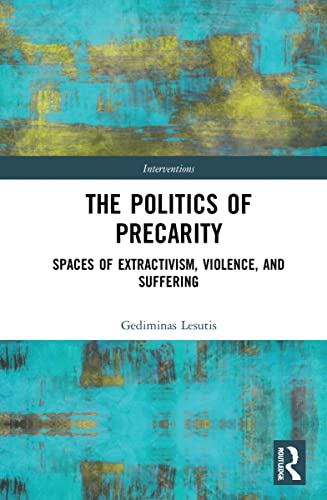

Most ebook files are in PDF format, so you can easily read them using various software such as Foxit Reader or directly on the Google Chrome browser.
Some ebook files are released by publishers in other formats such as .awz, .mobi, .epub, .fb2, etc. You may need to install specific software to read these formats on mobile/PC, such as Calibre.
Please read the tutorial at this link: https://ebookbell.com/faq
We offer FREE conversion to the popular formats you request; however, this may take some time. Therefore, right after payment, please email us, and we will try to provide the service as quickly as possible.
For some exceptional file formats or broken links (if any), please refrain from opening any disputes. Instead, email us first, and we will try to assist within a maximum of 6 hours.
EbookBell Team

4.4
72 reviewsBased on critical theory and ethnographic research, this book explores how intensifying geographies of extractive capitalism shape human lives and transformative politics in marginal areas of the global economy.
Engaging the work of Judith Butler, Henri Lefebvre, and Jacques Rancière with ethnographic research on social and political effects of mining-induced dispossession in Mozambique, in the book, Lesutis theorizes how precarity unfolds as a spatially constituted condition of everyday life given over to the violence of capital. Going beyond labor relations, or governance of life in liberal democracies, that are typically explored in the literature on precarity, the book shows how dispossessed people are subjected to structural, symbolic, and direct modalities of violence; this simultaneously constitutes their suffering and ceaseless desire, however implausible, to be included into abstract space of extractivism. As a result, despite the multifarious violence that it engenders, extractive capital accumulation is sustained even in the margins, historically excluded from contingently lived imaginaries of a "good life" promised by capitalism.
Presenting this theorization of precarity as a framework on, and a critique of, the contemporary politics of (un)liveability, the book speaks to key debates about precarity, dispossession, resistance, extractivism, and development in several disciplines, especially political geography, IPE, global politics, and critical theory. It will also be of interest to scholars in development studies, critical political economy, and African politics.